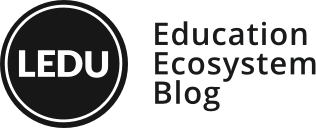Nir Eyal is a famous author and consultant. He is from New York City and has successfully worked on startups and also invested in few startups as an angel investor. With a solid background of startups, his current work revolves around the design of user’s behavior and habit formation. His passion is designing user behavior around a product rather than doing simple trial and error to understand users. His book, Hooked: How to Build Habit-Forming Products covers the subject in detail. This all is also evident if you can see his powers below which are “Behavior Design” and “Habit Formation.” Are you intrigued just like how we were when we first approached him? If yes, let’s listen from the Nir Eyal himself.
Real Name: Nir Eyal
Location: New York City
Power/Abilities: Behavioral Design and Habit-Formation
Profession: Author and consultant
Website: NirAndFar.com
1. Nir, it is a pleasure to have you here. Can you tell us more about yourself?
At my last company I worked at the intersection of gaming and advertising and I saw all kinds of tactics used to change customer behavior. I noticed that many people in the industry didn’t know why certain things worked or the psychological principles driving behavior — they just knew they were effective.
As an entrepreneur, I spent a lot of time banging my head against the wall trying to figure out why people were or were not engaging with the products my company built. Many designers experience this same frustration. Some products fly while others flop and we are never quite sure why.
When my company was finally sold, I decided I needed to understand user behavior better before starting another venture.
I wanted to find out what made some experiences habit-forming and that’s really been the central question with my work — how do products create habits? How do some companies draw users back again and again without wasting money on expensive advertising or spammy marketing tactics?
I spent years pouring over consumer psychology texts, behavioral economics books, and human-computer interaction research but didn’t find practical tools for building repeat engagement. So I decided to write the book I couldn’t find.
2. What motivated you to pursue a BA from Emory University and then an MBA from Stanford University Graduate School of Business?
Not sure what you mean. Those schools in particular? Or higher ed in general? Can we pass on this question? Doesn’t really seem relevant to my work.
3. Your book, “Hooked: How to Build Habit-Forming Products” is a masterpiece. What motivated you to write the book in the first place?
See answer to question 1
4. What challenges did you encounter while writing the book? Are there any specific details you want to share?
Working on something original is always a challenge but since I was so immersed in these industries, which used the techniques I describe in my book, I didn’t find it very difficult to put what I’d learned to good use. The biggest challenge was deciding what to leave out.
5. Most of the time, startups ignore the psychological aspects of their product and how their audience will interact with it. What do you think is the reasoning behind this?
Startup founders tend to believe they simply need to build a good product and their business will succeed. That’s just not true. Building a good product is table stakes. Understanding consumer psychology not only helps you build something people want, it helps you build something people want to keep using. Building a customer habit is a tremendous competitive advantage. Without building repeat engagement, you’re vulnerable to competitors stealing your customer away.
6. Do you think understanding psychology can be useful in crowdfunding as well? If so, how?
Of course! Understanding what makes people tick is a very helpful way to understand what makes them click! Consumer psychology allows us to help people do things they want to do by improving the design of the user experience to facilitate the action you want people to take.
7. What other startups have you worked in the past? Which one was the most challenging?
I’ve started two companies and have invested in several others (see bio on my website). It’s hard to say which is more challenging since they’re all different in their own ways. I will say that with experience, starting companies gets easier.
8. When it comes to speaking to a large audience, what is the first thing you always keep in mind?
The first thing I think of when I’m preparing a talk is the same thing I think about when I’m helping a company build a better product or service – “Am I giving people something that improves their lives?”
9. What is your career advice to intermediates on LiveEdu.tv who are interested in improving their practical product development skills?
Study what makes your favorite products and service great. Understand why these products work so well and the business models behind these companies. Understanding these deeper truths will make you a better product designer and professional.







